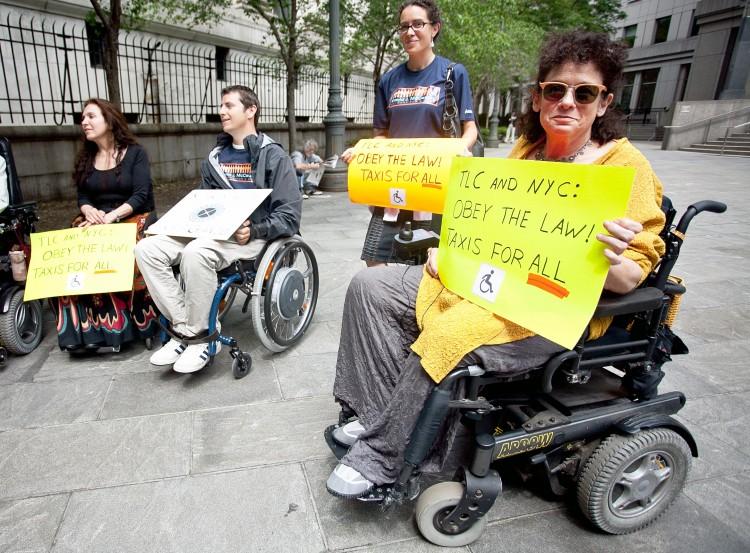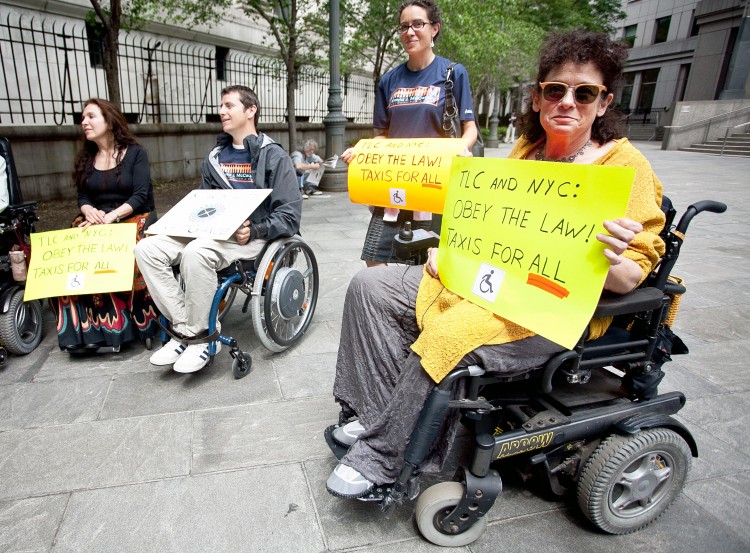NEW YORK—A federal court ruled that the Taxi and Limousine Commission, which administrates licenses to taxi and livery cab drivers, has not been violating the Americans with Disabilities Act.
A class action lawsuit brought last year against the commission by disability rights organizations and two individuals alleged the commission discriminates against disabled persons because only 232 of the 13,237 taxis in the city are wheelchair accessible.
A district court previously ruled the Taxi and Limousine Commission (TLC) must require wheelchair accessibility from all new taxi medallions and street-hail livery licenses, “until the TLC proposes and the district court approves a comprehensive plan to provide meaningful access to taxi service for wheelchair-bound passengers.”
Normally this wouldn’t be significant, but the TLC has plans in place to issue 20,000 new licenses over the next three years. The current state legislation governing these plans requires more than 5,000 of these licenses be issued to wheelchair-accessible vehicles, but the previous district court ruling would have required all 20,000 licenses be issued to wheelchair-accessible cars.
Yet, on Thursday, the Federal Court of Appeals overturned the lower court’s ruling, instead ruling that the TLC does not discriminate against disabled persons.
“Plaintiffs contend that the TLC violates the ADA because it could require more taxis to be accessible, but does not,” the ruling stated. “The TLC’s licensing requirements do not discriminate and do not cause anyone else to discriminate, by licensing or otherwise.”
The TLC, a public entity, requires 231 wheelchair-accessible taxis, but does not prohibit any of the other taxis from being wheelchair accessible—that is the private industries, or the medallion owners, choice.
“No doubt, more such taxis would be on the streets if the TLC required more of them to be accessible,” the court stated. “But the TLC’s failure to use its regulatory authority does not amount to discrimination within the meaning of the ADA or its regulations.”
The plaintiffs also argued that Taxi for Tomorrow, a new model built exclusively for the city, is discriminatory because it lacks wheelchair accessibility.
The Court of Appeals declined on deciding on that argument, and said the model is only being used as a transition between the old taxi and the “standard taxi” of the future.
Disability Rights Advocates Director of Litigation Sid Wolinsky, one of the plaintiffs, said in a statement that the plaintiffs have several other lawsuits they could bring, including one they will pursue under the Rehabilitation Act.
The Epoch Times publishes in 35 countries and in 19 languages. Subscribe to our e-newsletter.







